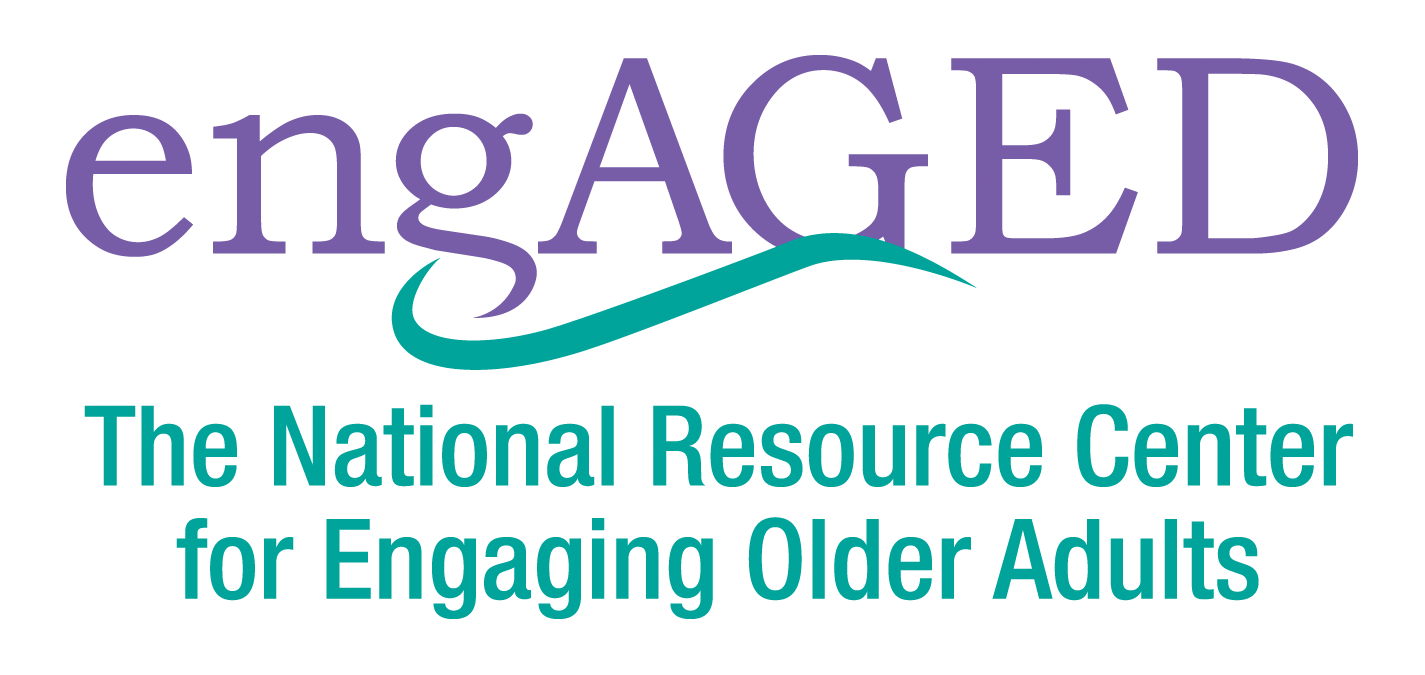Partnering with Parks and Recreation Agencies on Social Engagement: Takeaways from the February engAGED Webinar
Park and recreation agencies provide recreation opportunities for individuals across the country—and can serve as an important partner for organizations developing social engagement programs for older adults. The February engAGED webinar highlighted collaborative ways in which the Aging Network and local park and recreation agencies can create opportunities for social engagement.
How Park and Recreation Agencies Support Older Adults
According to the National Recreation and Park Association (NRPA), nine in 10 park and recreation agencies have dedicated facilities, activities and programming for older adults and 63 percent identify Area Agencies on Aging as their most common partner in efforts to deliver services to older adults[1]. Park and recreation offerings for older adults include exercise classes, field trips, arts and craft classes, volunteer opportunities and events—all of which can improve mental and physical health outcomes, increase social connections, build a stronger social network and help older adults age in place.
Local Aging Network and Parks and Recreation Partnership Example
County of San Diego Health & Human Services Agency, Aging & Independence Services (AIS), the designated Area Agency on Aging in San Diego, CA, works with its county parks and recreation department to create opportunities for social connection and engagement, with a specific focus on supporting kinship families. A result of this partnership is Gramping, a campout event just for kinship families. With Gramping, camping fees are waived at a county park site and all food and activities are provided for a full-on camping experience that includes nature hikes with other kinship families, smores around the campfire and more. Generous community sponsors donate sleeping bags and tents for families who don’t have them. Families can keep the equipment for future use. Gramping helps strengthen family bonds and build an informal network of peer support among other kinship families. The partnership has also resulted in the creation of an event to pamper kinship caregivers that is held at a county park site and a voucher program for kinship families that helps these families cover the costs of taking a class or participating in day camps at park sites.
Tips to Partner with Parks and Recreation in Your Community
The February engAGED webinar speakers offered the following tips to help the Aging Network partner with park and recreation agencies.
NRPA:
Establish goals early in the relationship that align with the mission and vision of all organizations involved.
Create clear project management structures including the management structure, funding source and the role of other partners.
Fund the work of the partnership to ensure sufficient capacity to accomplish the established goals.
Develop a messaging framework that focuses on audience, translation and dissemination of messaging.
Help create a sense of community by exploring partnerships with other like-minded organizations as possible collaborators.
Include community members in partnership building to empower community members and encourage participation and buy-in.
AIS:
Look for common goals and similarities in strategic plans, which can serve as an extra incentive to work together.
Remember that small and simple steps make a difference, too. Start wherever you are and build from that.
Tap into the upside of the outside. Being out in nature has research-proven benefits and park and recreation colleagues are experts at helping people tap into these benefits.
Additional Resources
NRPA and AIS shared the following resources to help organizations with developing programming ideas:
To learn more about partnerships with park and recreation agencies and ways your organization can create similar collaborations, listen to the webinar recording and view the webinar slides.
[1] https://www.nrpa.org/contentassets/79223ed861564c3c9bd386a60fac473c/healthy-aging-survey-report.pdf
